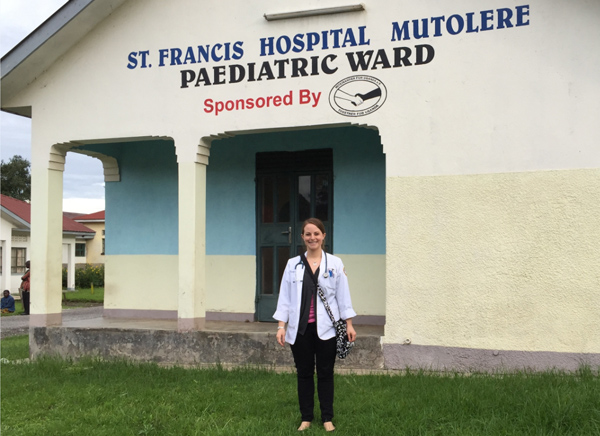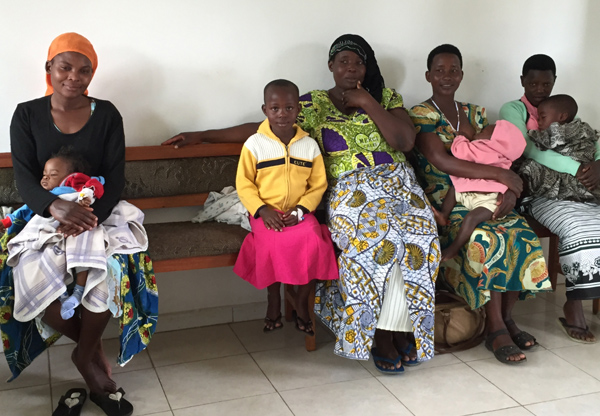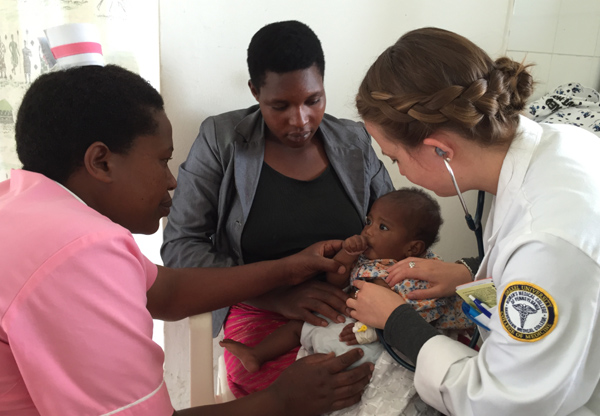Clare Coda
Uganda
April 2015, 4th Year Elective
Why did you choose this elective?
"I grew up in a family that places a high value on service, and I've spent several years overseas while my father worked as a physician in developing countries. I was interested in experiencing the hospital atmosphere for myself, so I applied to an elective at St. Francis Hospital in southwestern Uganda where my parents had been on two previous occasions."

What did you learn while you were there and what challenges did you face?
"My time in Uganda was outstanding. First and foremost, the sheer volume of patients was tremendously helpful in improving history and physical skills, as well as developing effective and tailored management plans for a wide variety of cases. The cases were interesting, and while they were largely common diagnoses, there were quite a few diagnoses I had not yet seen - worms, malaria, typhoid, dysentery, peritonitis, meningitis, osteomyelitis, and empyema - in addition to unusual or advanced presentations of common illnesses. I loved the mix of patients and the hospital staff. Working with so many nursing students was helpful for my learning, and (I hope) it was helpful for them to have a medical student around to ask questions to as well.
"The experience had its challenges, mostly emotional, as patients died not infrequently. Babies that I know would have easily survived at home died regularly as they had minimal means to care for newborns (no ventilators, only one incubator for the hospital, no formula milk). You'd want to give patients a particular medicine and nothing would be available. Once you got used to what was possible, your expectations adjusted, but it was still frustrating at times and losing patients was always sad."

Why do you think others should also pursue global health electives?
"I think having exposure to health settings such as this is incredibly important for understanding health care on a global level. As students, our exposure to health care is incredibly limited to hospitals and clinics with thousands of diagnostic modalities (imaging and labs) available. Sadly a thorough history and physical examination (H&P) often takes a backseat to waiting on test results. In resource-limited settings, you are forced to rely on your H&P. You learn to use what resources are available to you, often in new and inventive ways. When tests aren't available, you have to reexamine the patients and their situations frequently to see if your potential treatment is helping, and if it’s not, figure out a way to help. We don’t always appreciate what we have in the US, and understanding what a large portion of the world has for health care is, I believe, important for personal growth.
"Uganda, in particular, was a welcoming, safe and fantastic learning environment. The hospital community is within a safe walled area which includes housing, and it wasn't infrequent for a hospital employee to come to the door to request assistance with a particular patient. The country in general is safe and gorgeous with lots of places to walk and explore. The hospital was used to having students visit, so they were welcoming and happy to have me. The learning environment was supportive and challenging. While I was supervised as a medical student, I was challenged to accept a patient load of a resident (with the knowledge that there was plenty of help if I couldn't handle it)."

What advice do you have for future students?
"My advice for students is to just do it! There is plenty of time during fourth year to do a global health elective, and the learning experience is out of this world. Most importantly, you need to be diligent in the paperwork process. It takes a long time to get approval, and it can be very discouraging, but it's worth it. Get in touch with students who have done international electives if you have questions. I wouldn't have done anything differently. I started as soon as I knew my fourth year schedule, which was the earliest possible time."
How will you use this experience in your future?
"I've always thought working in a resource-limited setting was something I would be interested in doing in the future, and this experience confirmed it. I'm looking forward to when I can return to St. Francis Hospital. In the less distant future, I know I will be better prepared to start residency, especially with my honed history and physical skills, especially in pediatrics."
Back to Top